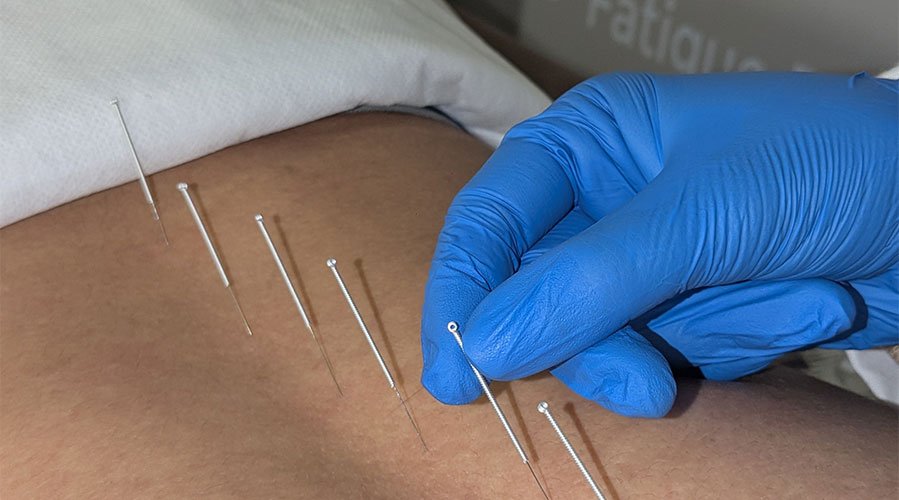What Is Clinical Acupuncture?
Clinical acupuncture is a scientifically-supported form of traditional Chinese acupuncture offered in modern medical settings like wellness clinics, hospitals, or physiotherapy centers. It involves the insertion of thin, sterile needles into precise acupuncture points on the body to regulate energy flow, stimulate natural healing processes, and reduce symptoms of chronic conditions.
Unlike traditional acupuncture alone, clinical acupuncture integrates Western medical knowledge and is often used in combination with other treatments for optimal results.
Key Features of Clinical Acupuncture at Salubrity
-
Evidence-Based Practice: Backed by global health authorities such as the WHO and NIH, clinical acupuncture is recognized for effectively managing pain, nausea, and stress-related disorders.
-
Integrated with Modern Medicine: Our certified practitioners combine acupuncture with other therapies such as physiotherapy, nutritional guidance, and lifestyle medicine to enhance overall outcomes.
-
Safe & Regulated: We ensure sterile environments, personalized treatment plans, and expert needle handling by licensed professionals.
-
Advanced Techniques Available:
-
Electroacupuncture (mild electrical stimulation)
-
Moxibustion (using Chinese herb artemisia vulgaris)
-
Trigger point acupuncture (for muscle pain)
-
How Acupuncture Works
-
Traditional Perspective: Stimulates the flow of Qi (vital energy) through meridians to rebalance the body’s energy systems.
-
Scientific Perspective: Promotes the release of endorphins, improves blood circulation, reduces inflammation, and modulates the nervous system.
Benefits of Clinical Acupuncture
Acupuncture therapy is effective for a wide range of physical and emotional health concerns, including:
-
Chronic pain relief (back, neck, joints, arthritis, migraines)
-
Reduction of anxiety, stress, and depression
-
Improved sleep quality and energy levels
-
Relief from chemotherapy-induced nausea and fatigue
-
Enhanced digestion and relief from IBS symptoms
-
Support for fertility and hormonal balance
Is Acupuncture Safe for Everyone?
While clinical acupuncture is generally safe when performed by trained professionals, it's not suitable for everyone. Consult our team if you have:
-
Bleeding disorders
-
Pacemakers
-
Are pregnant (special protocols apply)
-
Underlying health conditions
Our team at Salubrity Integrative Wellness Clinic will evaluate your medical history and tailor your treatment accordingly.
Why Choose Salubrity for Clinical Acupuncture?
-
Licensed and experienced practitioners
-
Integration with holistic wellness services
-
Modern facilities in a calming environment
-
Personalized care for long-lasting results
Book Your Acupuncture Consultation Today
Ready to experience natural healing through clinical acupuncture?
Call us now or book your session online at Salubrity Integrative Wellness Clinic, your trusted partner in integrative healthcare.
FAQs: Clinical Acupuncture
Q1: What is Clinical Acupuncture?
A1: Clinical acupuncture is a modern, evidence-based adaptation of traditional Chinese acupuncture practiced in a medical or clinical setting. It involves inserting ultra-fine, sterile needles into specific acupuncture points along the body’s meridians to stimulate natural healing, restore energy balance (qi), and relieve chronic pain, anxiety, migraines, or digestive issues. At Salubrity Integrative Wellness Clinic, clinical acupuncture is administered by certified professionals who integrate Eastern techniques with Western healthcare practices.
Q2: How Does Clinical Acupuncture Work?
A2: Acupuncture works by stimulating the nervous system, releasing endorphins (the body’s natural painkillers), improving circulation, and influencing neurotransmitters. Traditional Chinese medicine views it as a method to balance the body's vital energy (qi). Modern research suggests acupuncture helps reduce inflammation, manage pain, and improve emotional well-being.
Q3: Is Acupuncture Safe?
A3: Yes, acupuncture is generally safe when performed by a licensed and trained acupuncturist using sterile needles. Minor side effects may include bruising or slight soreness. Serious complications are rare but can occur if improper techniques are used. If you have bleeding disorders, pacemakers, or are pregnant, consult your healthcare provider before treatment.
Q4: What Conditions Can Acupuncture Help Treat?
A4: Clinical acupuncture can be effective for:
-
Chronic pain (back, neck, arthritis, sciatica)
-
Migraines and tension headaches
-
Nausea from chemotherapy or surgery
-
Anxiety, insomnia, and stress
-
Digestive issues (eg., IBS, bloating)
-
Fertility support and hormone balancing
The World Health Organization (WHO) recognizes acupuncture for treating several medical conditions. It’s best used as a complementary therapy alongside conventional medicine.
Q5: Does Acupuncture Hurt?
A5: Most people report little to no pain during acupuncture treatment. The needles are hair-thin and typically cause only a slight prick or tingling sensation. Some patients may experience warmth, heaviness, or a dull ache at certain points, which is a sign that the treatment is working.
Q6: How Should I Prepare for an Acupuncture Session?
A6: To prepare for your acupuncture therapy session:
-
Wear loose, comfortable clothes.
-
Avoid caffeine, alcohol, and heavy meals beforehand.
-
Stay hydrated and arrive relaxed.
-
Share your full medical history and current medications with your acupuncturist to ensure a safe and effective treatment plan.
Q7: How Many Sessions Will I Need?
A7: Treatment frequency depends on your specific health condition and response to therapy:
-
Acute conditions: 1–6 sessions
-
Chronic issues: 6–12 sessions or more
-
Maintenance or wellness support: monthly or biweekly
Your practitioner will develop a personalized plan and adjust it based on your progress.
Q8: Are There Any Side Effects of Acupuncture?
A8: Side effects are typically mild and temporary, such as:
-
Light bruising or soreness at the needle site
-
Fatigue or temporary dizziness
-
Increased energy or emotional release
Serious complications are rare when performed by a qualified practitioner. If any unusual symptoms occur after treatment, contact your healthcare provider promptly.
